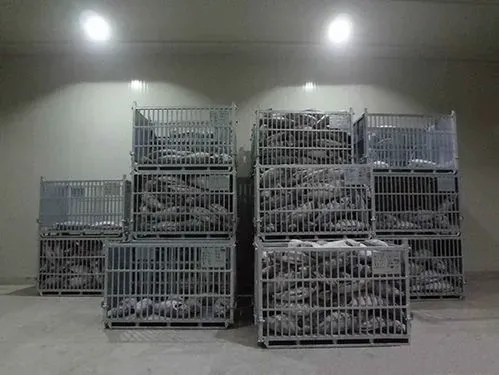freezer room
The Importance of Freezer Rooms in Modern Facilities
In today’s world, the significance of efficient cold storage solutions cannot be overstated. One of the most effective methods of preserving perishable goods is through the use of freezer rooms. These specialized facilities play a critical role in various industries, including food services, healthcare, pharmaceuticals, and floral industries. Understanding the design, function, and importance of freezer rooms can help us appreciate how they enhance food safety, contribute to sustainability, and support operational efficiency.
Freezer rooms are designed to maintain a low temperature environment, typically between -18°C (0°F) and -40°C (-40°F). This capability ensures the preservation and longevity of various products, particularly perishable items like meat, dairy, and vegetables. By drastically slowing down the growth of bacteria and decay, these rooms enable businesses to keep their inventory fresh for extended periods, thus reducing food waste significantly. In a world where food waste is a pressing issue, the role of freezer rooms becomes even more vital.
Moreover, freezer rooms contribute substantially to supply chain efficiency
. For businesses dealing in perishable goods, the ability to store items at controlled temperatures allows for better inventory management. Companies can buy in bulk during peak seasons and store products in their freezer rooms, ensuring a consistent supply throughout the year. This not only minimizes the risk of stockouts but also stabilizes pricing by mitigating the effects of seasonal fluctuations. Importantly, this practice fosters a more sustainable approach to consumption by reducing the need for constant production and transportation of fresh goods.freezer room

In the healthcare and pharmaceutical industries, freezer rooms are essential for storing vaccines, medicines, and biological samples that require specific temperature controls. Proper storage in ultra-low temperature freezer rooms is vital for maintaining the efficacy of these products. For instance, certain vaccines must be kept at precise temperatures to remain effective; deviations can lead to spoilage, rendering them useless. Thus, the integrity of freezer rooms is integral not only to business operations but also to public health and safety.
Beyond their functional aspects, the design and technology behind freezer rooms have evolved significantly. Modern freezer rooms are often equipped with advanced monitoring systems that provide real-time data on temperature and humidity levels. These systems include alarms that alert operators to temperature variances, ensuring immediate corrective actions can be taken to prevent spoilage. Furthermore, energy-efficient designs and insulation materials now help minimize energy consumption, which is crucial for reducing operational costs and environmental impact.
Another interesting aspect of freezer rooms is their application beyond just food safety. In floristry, florist cooler rooms are used to extend the life of flowers and arrangements. By keeping floral products in a controlled environment, florists can offer fresher blooms that last longer, thereby enhancing customer satisfaction.
In conclusion, freezer rooms are indispensable tools across various sectors, significantly impacting food safety, supply chain management, and healthcare efficiency. As industries continue to evolve and focus on sustainability, the role of these cold storage solutions will only grow in importance. By ensuring that perishable goods remain safe and maximally effective, freezer rooms not only enhance operational productivity but also support a broader commitment to minimizing waste and promoting sustainability in our daily lives. Embracing the advanced technology behind freezer rooms could lead to more innovative solutions that benefit consumers, businesses, and the environment alike.
















































































































